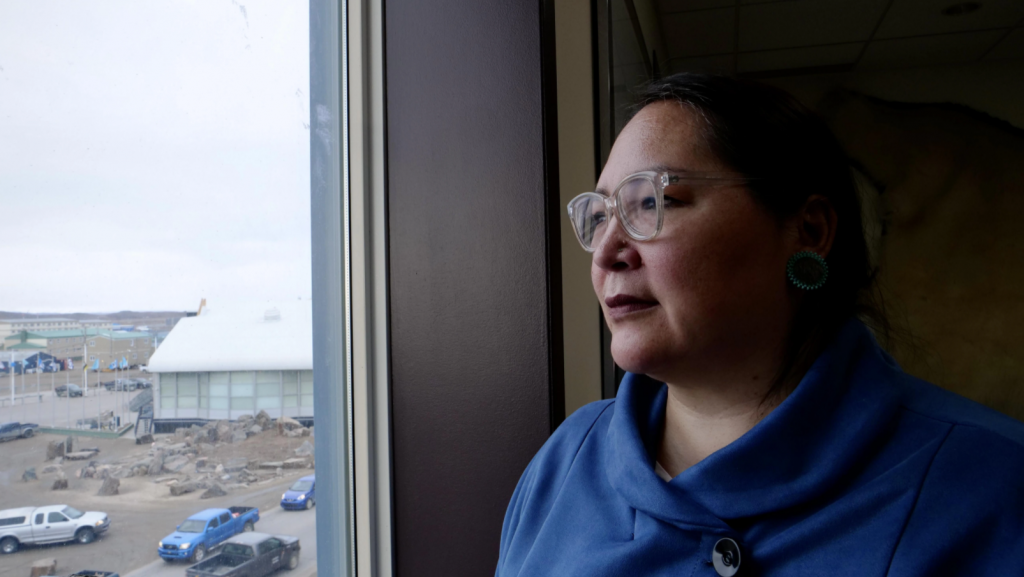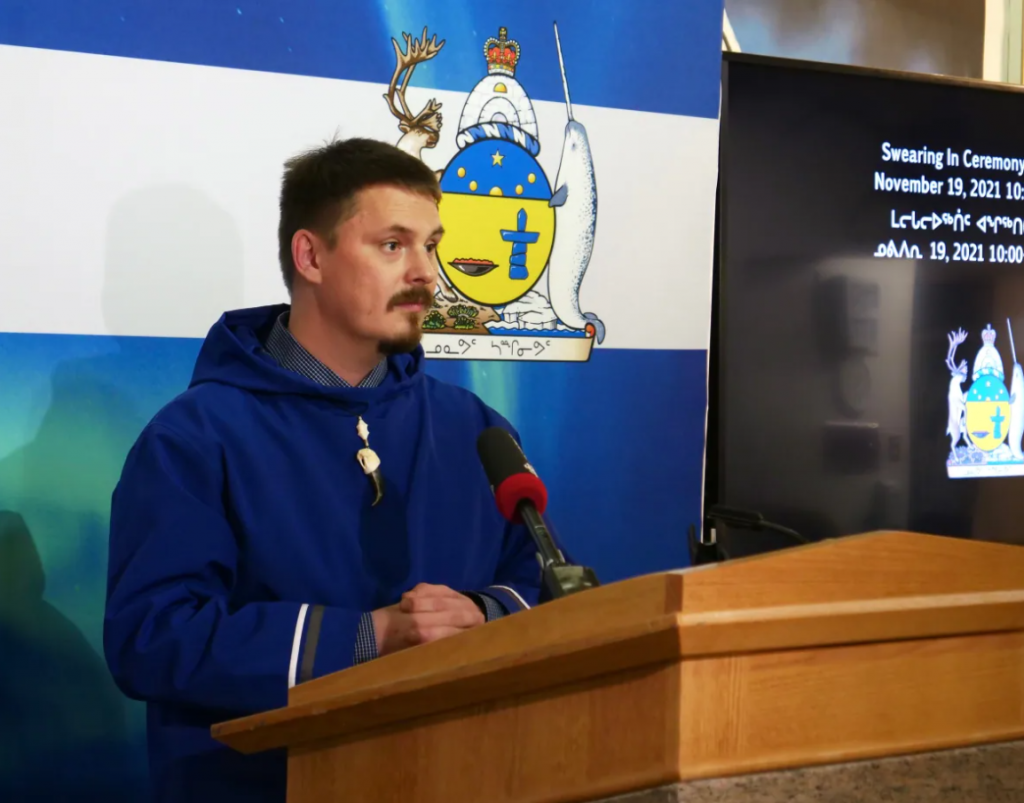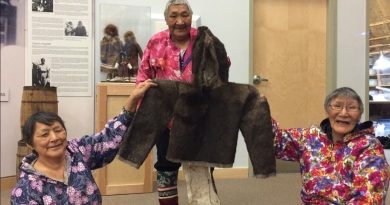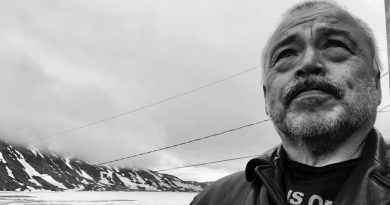Canada’s Nunavut Inuit organization plans to seek self-government

Nunavut Tunngavik Inc., which represents about 30,000 Nunavut Inuit, plans to push ahead with self-government negotiations.
“What we would like to see is that there are better services provided to Inuit in Nunavut that incorporate Inuit world views and end the current public government model,” said NTI president Aluki Kotierk.
That’s although the Nunavut government, established when the territory was created in 1999 by the Nunavut Act, was intended to serve its mainly Inuit population.
But that hasn’t worked out after 22 years as the widespread poverty, hunger and high incidence of suicide show, Kotierk said.
“All these different determinants that would determine whether or not any lives are getting better continue to be alarmingly low. And so then, it pushes us to think, is there a better way in which we can address the needs?” she told CBC.
“When we work with the government of Nunavut, or we want these specific programs, the response often is, ‘But this is a public government.'”
As a result, NTI, which is the entity charged with safeguarding Inuit rights under the Nunavut Agreement, must look at alternative means to meet Inuit-specific needs, she said.
A resolution to that effect was passed on Nov. 16 by delegates at NTI’s annual general meeting in Rankin Inlet.
Nunavut Agreement not fulfilled
According to Kotierk, one way the public government has failed Inuit is by failing to fulfil some of the articles of the Nunavut Agreement, which was signed by Inuit and the federal government in 1993 and lays out land and other rights of Inuit in the territory.
These include Article 23, for instance, which covers Inuit employment in the public service.
The article says that Inuit employment should reflect the percentage — roughly 85 per cent of 39,000 inhabitants — of the territory’s Inuit population.
A presentation about self-government at the annual general meeting noted the goal has never been met. A territorial government report from June shows that Inuit make up just 50 per cent of the Nunavut government workforce and just 20 per cent of senior management staff.
This has an impact on how programs and services are designed and developed and the well-being of Nunavummiut, Kotierk said.
The result is “very apparent in the way in which we continue to conduct self-harm and the way in which we continue to have violent outbursts in our communities,” Kotierk said.
“And those are just symptoms of what continues to happen in our communities, and the public government system is meant to help alleviate that. And instead, it continues to deteriorate our sense of well-being.”

Discrimination suit underway
The resolution comes after a year of strife with the Nunavut government. In October, NTI filed a lawsuit against the Nunavut government alleging that it discriminates against Inuit by not offering education in Inuktut to the same degree as English or French.
Also in October, NTI considered a lawsuit over a change the Nunavut government made in how taxes are collected on Inuit-owned land.
The NTI presentation earlier this week put forward three options for consideration by AGM delegates: striking an agreement with the government of Nunavut to take over services; developing NTI’s capacity to deliver services directly to Inuit; or engaging the federal government to establish a formal self-government in Canada.
“If we pursue the comprehensive land claims approach, we know that will take many years,” Kotkierk said. “But we also know that if we go through an agreement currently that takes on some of the public services responsibility, that might be something that could start addressing some of the issues that we have in our communities more immediately.”
As a first step, the resolution passed asks for the organization to seek that negotiating mandate with the federal government.
“I think we’ve been given marching orders now to do the practical work of going to the federal government to seek this mandate,” Kotierk said. “And we will work with our board to develop a constitution or a vision statement.”
A change in leadership
But there’s a new player on NTI’s field now, the incoming premier P.J. Akeeagok, who was elected premier by his colleagues Wednesday.

Before moving into territorial politics, Akeeagok headed the Qikiqtani Inuit Association and sat on NTI’s board, where he was supportive of the self-government move.
On Thursday, the day following his selection, Kotierk spoke to Akeeagok about areas they can work on.
“I suspect that he will be very supportive of all things that Inuit organizations are trying to achieve through Inuit self-determination,” she said.
The two plan to meet Monday, Kotierk said.
Related stories from around the North:
Arctic: Int’l Inuit org receives provisional consultative status on the International Maritime Organization, Eye on the Arctic
Canada: P.J. Akeeagok has been selected as next premier of Nunavut, Canada, CBC News
Finland: With cooperative spirit, Finland targets Arctic Russia, The Independent Barents Observer
Norway: Norwegian army starts training with anti-tank mines near Russia border, The Independent Barents Observer
Sweden: Arctic Sweden to welcome thousands of international troops for Northern Wind exercise, The Independent Barents Observer
United States: Russian, U.S. foreign ministers to meet on sidelines of Arctic Council meeting, Eye on the Arctic



